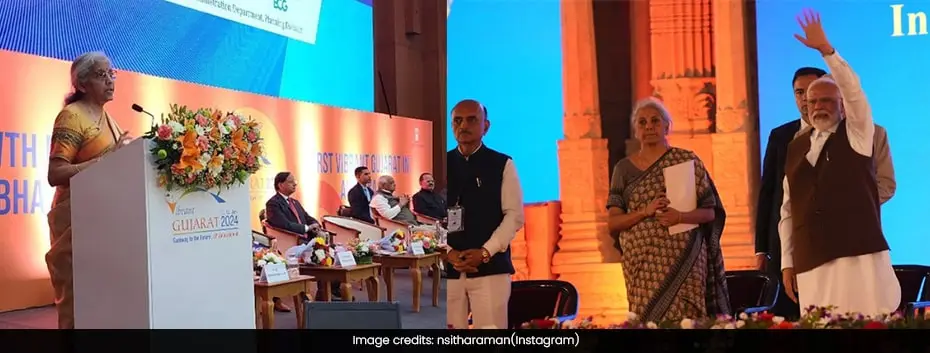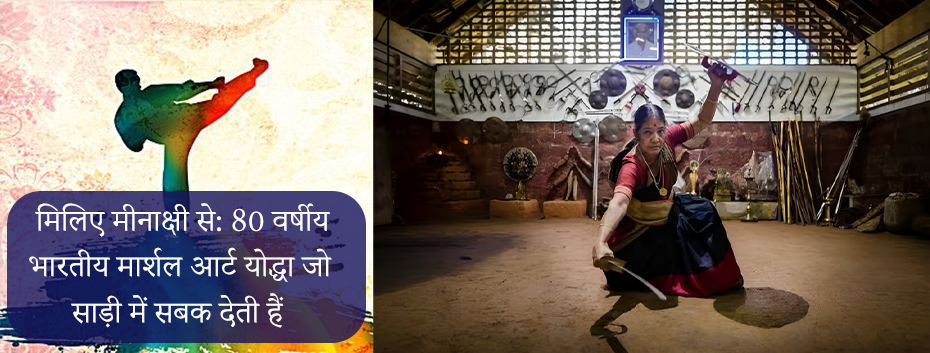![]() English
English
Health
FM Sitharaman: From Vaccines for Girls to Anganwadi Upgrade, Here’s Budget 2024

Sitharaman emphasized the government’s plans to set up more medical colleges and said that the government aims to serve the people through improved healthcare services
Finance Minister Nirmala Sitharaman, during the Interim Budget 2024, planned out a strategy that reinforces women’s health and education on Thursday, 1st February 2024. From cervical cancer to the upgradation of Anganwadi centers, the Finance Minister tabled the 2024 interim Budget plan in the Parliament. Stressing and highlighting the significance of preventive healthcare, the FM proposed a vaccination drive for girls aged 9-14 years to avoid the risks of cervical cancer, a deadly disease that secures second spot as the most common among the women of India. Following these, Sitharaman also pointed out the need for several other deep-rooted demands which need to be addressed.
About the Vaccination Scheme for Girls and Anganwadi Upgradation
Regarding the same, Sitharaman said that the government will actively promote vaccination for girls from the age group of 9-14 years to avoid cervical cancer. Furthermore, additional schemes for maternal child care will be amalgamated and launched under one grand scheme for smooth-flow implementation. In other words, this grand scheme aims to the efficacy of the services mentioned, avoid redundancies, and enhance the overall impact of these initiatives, encouraging a comprehensive approach towards women’s healthcare.
In addition to this, Sitharaman also announced the accelerated upgradation of Anganwadi centers under the ‘Saksham Anganwadi’ scheme and the implementation of the Poshan 2.0 scheme aiming to improve proper nourishment delivery and early childhood care, addressing crucial aspects of women’s and children’s well-being. The Finance Minister also underscored the government’s total responsibility and adherence to immunization management by introducing the U-WIN platform nationwide. This platform will play a pivotal role in efficiently managing and tracking immunizations across the country.
Cervical Cancer and HPV Vaccination
Cervical cancer, which received the Interim Budget push, is the second most common type of cancer diagnosed in women in India.
According to the National Library of Medicine, Cervical cancer is caused by certain types of HPV or Human Papillomavirus. HPV is a group of 200 related viruses that causes several types of cancers, including cervical cancer. The HPV infection is common and is sexually transmitted. Unlike other cancers, cervical cancer occurs early and strikes directly at the productive period of a woman’s life. Normally, on average, it is observed in people belonging to the age group 30-34 years of age and reaches its peak at 55-65 years of age, with a median age of 38 years (age 21–67 years). Statistically, it is seen that more than 80% of sexually active women acquire genital HPV by 50 years of age.
Vaccination:
However, Cervical cancer is preventable and a curable disease. If detected early, it can managed and cured effectively. One of the easiest ways to prevent it from happening is through vaccination programs.
You can find three types of HPV vaccine in the global market. All of the mentioned vaccines provide prevention against HPV types 16 and 18, which are the most common viruses resulting in cervical cancer.
| Vaccine Name | Available | Description | For |
| Ceravix (bivalent) | Global | Protects against two high-risk HPV types (16 and 18), responsible for 70% of cervical cancers. | Typically recommended two-dose schedule for females aged 9-14 years |
| Gardasil(quadrivalent) | Global | Offers protection against genital warts by covering four HPV types (16, 18, 6, 11) | Recommended two-dose or three-dose schedule for females aged 9-26 years. |
| Cervavac | India | India’s first indigenous HPV vaccine that targets the same four HPV types as Gardasil. Launched in January 2023 by SII, Pune. | Typically recommended to get vaccinated for females aged 9-14 years |
While the international vaccines are quite expensive, Cervavac is undergoing evaluation for inclusion in the national immunization program and is expected to be more affordable than the globally available ones. The cost is expected to be around Rs 200 to 400. Young girls between the ages of 9 and 14 years should get vaccinated to prevent high-risk HPV’s from developing cancer.




